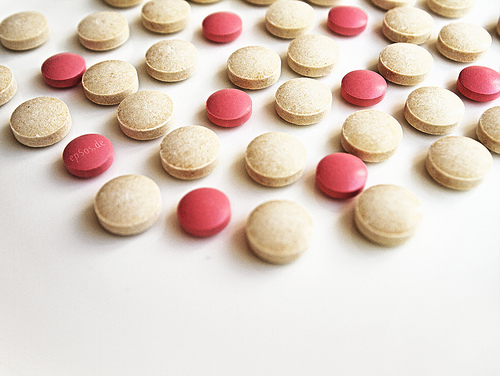Members of the public are being urged to stand up to illegal drug drivers, as a survey by Brake and Direct Line finds the equivalent of one million UK drivers (3%) admit driving on drugs in the past year, and just over one in ten (11%) think they may have been a passenger with one.
At the same time, three in 10 (29%) admit they wouldn’t always speak out to stop a friend driving on drugs.
New drug driving law coming into force in 2015
The findings come shortly before a new law, coming into force on 2 March 2015, will make it an offence to drive with drugs in your body across Britain, aiming to make it much easier to prosecute drivers on drugs.
Brake and Direct Line’s survey findings suggest an alarming level of ignorance or complacency about the effects of illegal drugs, especially among male and young drivers:
- Three in 10 (29%) wouldn’t always speak out if a friend was going to drive on drugs, and a significant one in 20 (5%) wouldn’t speak out even if their friend was clearly out of control. This was most common among young (9%) and male (7%) drivers.
- Young people and men are also most likely to have possibly or definitely been a passenger with a driver on drugs. 18% of young drivers and 15% of male drivers say they have been in this situation in the past year. Full results below.
The drug drive law coming into force in March will make it a criminal offence to drive under the influence of drugs, with specified zero-tolerance limits enforced with roadside drug testing devices. Those found guilty will face a maximum six month jail sentence, £5,000 fine, and automatic 12 month driving ban. The law is also known as Lillian’s Law, after 14 year old Croydon school girl Lillian Groves, killed outside her home by a speeding driver on cannabis in June 2010. The tireless campaigning of her family has been instrumental in changing the law, and was honoured by Brake through an award last year.
Natasha Groves, Lillian’s mum, said: “Lillian was a wonderful young girl who did not deserve to die. She lit up rooms and gave warmth to everyone she met. A child being so suddenly killed, in such a needless and destructive way, is something that tears a hole in the heart of your family; it creates a shadow over your home you can’t get away from. But as a family, we felt we couldn’t be defeated; we needed to do something to prevent others suffering the way we have. That’s why we fought so hard for a change in the law. Nothing will ever make up for the travesty of Lillian being stolen from us, but we urge all drivers never to drive after taking illegal drugs and save other families from going through the same ordeal we have.”
Julie Townsend, deputy chief executive, Brake, said: “Drug driving is a menace that causes absolute devastation to families and communities, and ends too many lives too soon. We all need to stand up and fight to end it, as the Groves have done so bravely following the terrible death of Lillian. Our message to everyone is never to underestimate the effects of illegal drugs on driving. If someone is on drugs, they are not fit to drive, even if they don’t seem obviously impaired. Look out for your friends, and if you think they might be driving on drugs, speak out. You will stop them putting innocent lives in danger, and you may stop them going to jail.”
Rob Miles, director of car insurance at Direct Line, commented: “Drugs and driving are a deadly combination which can have devastating effects on people’s lives, particularly in combination with alcohol. Driving under the influence of illegal drugs seriously compromises someone’s ability to control a vehicle, affecting their judgement, their reactions and their ability to concentrate. Direct Line welcomes the drug drive law coming into force next March and hopes it will act as a deterrent to anyone tempted to drive after having taken illegal drugs.”
Facts about Drug Driving
Illegal drugs have a variety of very serious negative effects on driving ability, and the effects can be highly unpredictable given their unregulated and variable nature. Drugs affect different people in different ways and the effects can last for days, sometimes without that person being aware of it. The likely effects of some common illegal drugs on driving include:
- Cannabis slows your reaction times, affects your coordination and concentration and makes you drowsy.
- ‘Stimulant’ drugs such as ecstasy, speed and cocaine distort your perceptions and make you jumpy. They can also make you over-confident or paranoid and confused.
- Heroin and other opiates make you feel relaxed and sleepy, slowing reaction times and impairing coordination.
Historically, levels of drug driving have not been fully recorded, but research suggests that the scale of the problem may be similar to drink-driving. A study by the Transport Research Laboratory has found that 18% of drivers and 16% of motorcyclists killed in road crashes had traces of illegal drugs in their system, the most common being cannabis. It’s been estimated that 200 deaths a year may result from drug driving.
As of 2 March 2015, it will be an offence to drive with drugs in your body in England, Scotland and Wales, removing the need to prove impairment. The offence carries a maximum six month jail sentence, maximum £5,000 fine, and an automatic 12 month driving ban. Roadside drug testing devices will be used by police to catch drug drivers.
To find out more about drugs and their effects, visit the government’s drug advice website at www.talktofrank.com.

